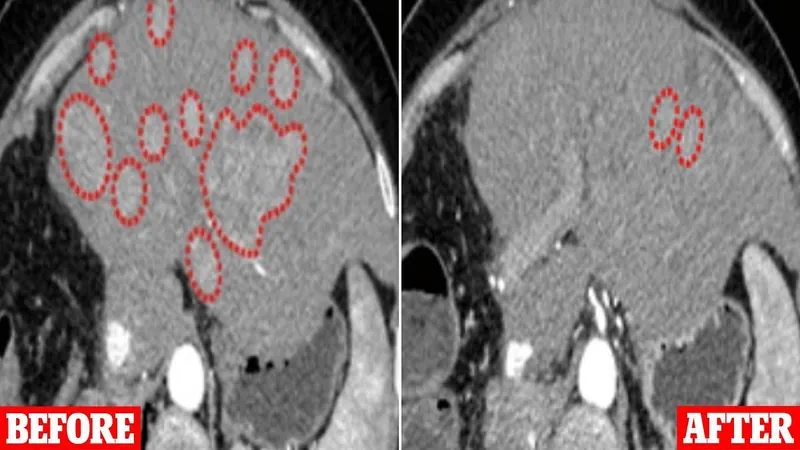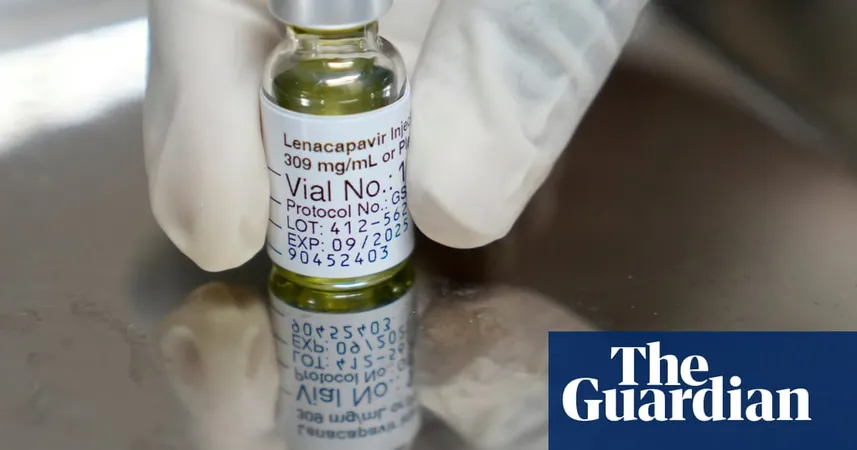
Revolutionary Cancer Treatment Using Modified Virus Shows Hope for Terminal Patients!
2025-01-20
Author: Ting
Groundbreaking Study in China
A groundbreaking study out of China reveals that a modified virus could soon revolutionize the treatment of some of the most pervasive cancers in the United States. Researchers have engineered a virus commonly found in birds to help the immune system identify and attack cancer cells, offering hope to terminal patients whose options have been exhausted.
Clinical Trial Results
In a clinical trial involving 23 patients suffering from eight distinct types of cancer—including breast, lung, and skin—nearly all participants experienced either a reduction in tumor size or stagnation in tumor growth after receiving weekly infusions of this innovative therapy for eight to twelve weeks. Remarkably, only one patient did not respond positively to the treatment.
Animal Studies Show Promise
The experimental therapy, known as NDV-GT, also demonstrated promising results in animal studies. Five monkeys with liver cancer were treated, and all of them survived longer than those receiving a placebo—a testament to the potential of this approach.
Expert Opinions
Experts not directly involved in the research expressed cautious optimism, noting the broad applicability of the treatment across various cancers and highlighting the need for further trials to validate its safety and efficacy before it can become accessible to American patients. The road ahead, however, is expected to be long, given the robust regulatory requirements.
What Sets NDV-GT Apart?
What sets NDV-GT apart? This treatment capitalizes on a unique immune response inspired by the body’s reaction during organ transplant procedures. Dr. Yongxiang Zhao from Guangxi Medical University drew inspiration from studying organ transplants, where human antibodies rapidly attack pig cells, leading to transplant rejection. This concept has been ingeniously adapted to combat cancer.
Mechanism of Action
The therapy employs a genetically modified strain of the Newcastle disease virus, notorious for its lethality in birds but harmless to humans. The innovation arises from engineering the virus to carry the genetic blueprint for an enzyme called α-1,3-galactotransferase, which adorns cancer cells with sugar molecules similar to those found on pig tissue. This modification effectively alerts the immune system to the presence of cancer, prompting an aggressive attack while sparing healthy cells.
Initial Human Trial Outcomes
In the initial human trial, patients presented with advanced stage cancers, with many having less than a year to live. Out of those treated, two patients experienced significant tumor shrinkage, while five others saw growth cessation. Unfortunately, some patients did report an eventual resumption of tumor growth after a temporary halt, with only two participants experiencing no discernible benefits.
Expert Validation
Dr. Brian Lichty, an immuno-oncologist at McMaster University, acknowledged the promising early results but emphasized that comprehensive clinical testing is crucial prior to broad implementation. "It’s a little unusual for a treatment to yield encouraging results across such a diverse spectrum of cancers," he stated, expressing hopes for the therapy's future development.
Next Steps
The next steps involve advancing the therapy into phases two and three of clinical trials, with the latest findings published in the journal *Cell*. Current cancer statistics in the U.S. are staggering—approximately 2 million Americans are diagnosed yearly, leading to around 608,000 deaths. The urgent quest for effective treatments is apparent, particularly as prevalent types like breast cancer, lung cancer, and melanoma account for over a quarter of all cases.
Oncolytic Virus Therapy
This novel approach, known as oncolytic virus therapy, aims to exploit viruses to selectively destroy cancer cells without harming normal tissue. To date, the FDA has approved only one such therapy, T-VEC, which uses a modified herpes virus for melanoma treatment, highlighting the potential of NDV-GT to join the ranks of innovative cancer therapies.
Stay Tuned
Stay tuned for updates on this promising treatment as it progresses through subsequent clinical trials! The war against cancer may be gaining a powerful ally!


 Brasil (PT)
Brasil (PT)
 Canada (EN)
Canada (EN)
 Chile (ES)
Chile (ES)
 Česko (CS)
Česko (CS)
 대한민국 (KO)
대한민국 (KO)
 España (ES)
España (ES)
 France (FR)
France (FR)
 Hong Kong (EN)
Hong Kong (EN)
 Italia (IT)
Italia (IT)
 日本 (JA)
日本 (JA)
 Magyarország (HU)
Magyarország (HU)
 Norge (NO)
Norge (NO)
 Polska (PL)
Polska (PL)
 Schweiz (DE)
Schweiz (DE)
 Singapore (EN)
Singapore (EN)
 Sverige (SV)
Sverige (SV)
 Suomi (FI)
Suomi (FI)
 Türkiye (TR)
Türkiye (TR)
 الإمارات العربية المتحدة (AR)
الإمارات العربية المتحدة (AR)